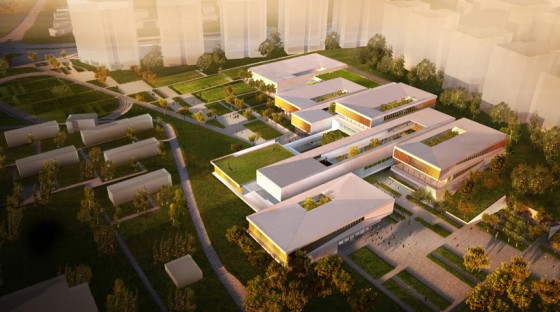 If there’s something that the Israelis do as well as or even better than clean tech, it is agriculture. When the state was established in the mid 20th century, the first pioneers faced large swaths of dry and barren land. It is part of the country’s legacy that they then proceeded to transform this wasteland into fields of green that still thrive today.
If there’s something that the Israelis do as well as or even better than clean tech, it is agriculture. When the state was established in the mid 20th century, the first pioneers faced large swaths of dry and barren land. It is part of the country’s legacy that they then proceeded to transform this wasteland into fields of green that still thrive today.
SHaGa Studio from The Netherlands collaborated with Israel’s Auerbach Halevy Architects to design a sustainable education campus in Ramat Efal called Fields of Knowledge. The concept, which received second place in an international design competition, celebrates these agricultural roots with a series of linear “knowledge fields” that incorporate a variety of strategies to conserve energy, water and space.
Instead of relegating the campus to the outskirts of town, the design team conceived Fields of Knowledge as a new “focal point” for Ramat Efal. More interestingly, they were keen to ensure that the private educational functions would merge with public, social functions as a new model for urban education centers.
The classrooms and lecture halls are located on the upper level, while the media center, sports hall and equipment , theater and other public facilities are situated on the lower level, which is accessed by a parkway.
All of these spaces are joined by a series of green patios, terraces and gardens that eliminate a stark separation between the interior and exterior.
Each “knowledge cluster,” which fosters small group collaboration, was oriented for maximum wintertime solar gain and natural ventilation that also takes summertime comfort into consideration.
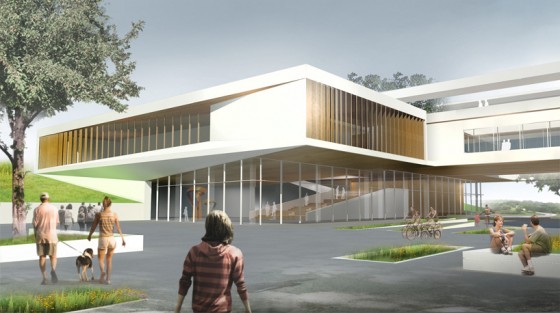 Combined, the clusters form a “mat organization” that is flexible enough to accommodate future growth without compromising a strong sense of identity. Water conservation played an important role in the design, which is essential given that Israel doesn’t have a lot of it.
Combined, the clusters form a “mat organization” that is flexible enough to accommodate future growth without compromising a strong sense of identity. Water conservation played an important role in the design, which is essential given that Israel doesn’t have a lot of it.
While SHaGa Studio and Auerbach Halevy Architects didn’t scoop first place, they did beat out 50 other firms with this thoughtful proposal for an inspiring educational village.
:: Bustler

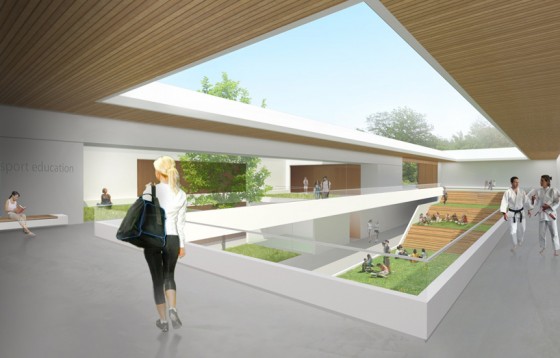
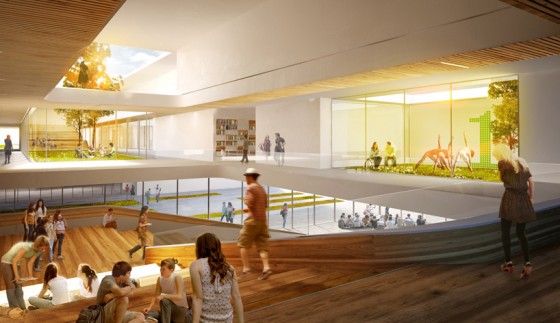
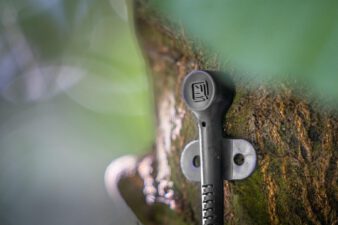


What you fail to mention, is that Israels “agricultural” roots, was actually an attempt to terraform the middle easts natural environment into an artificial European one, coupled with untold destruction of local flora, fauna and other living species. This development used untold amounts of neighbouring countries water resources and destroyed the traditional Arab and Bedouin system of life. A highly irresponsible article for a “green” prophet. Not only are these system’s sustainability contentious, they’re also highly destructive. Greenwashing the State of Israel yet again.